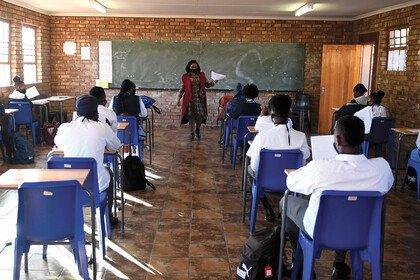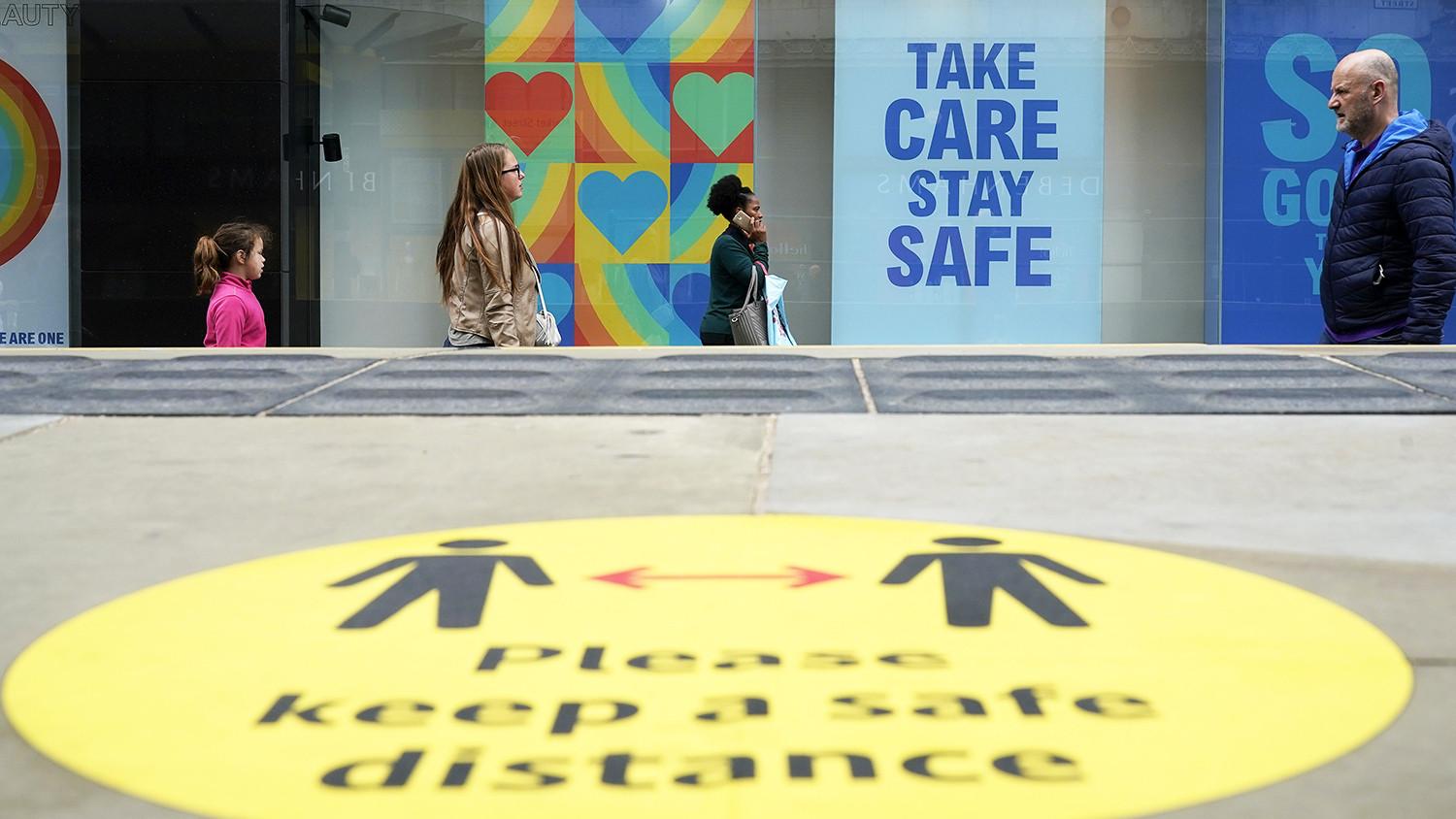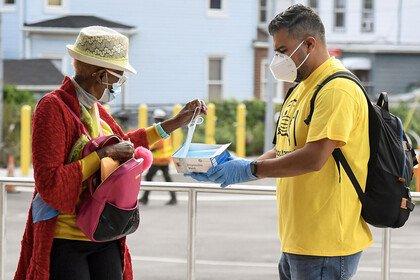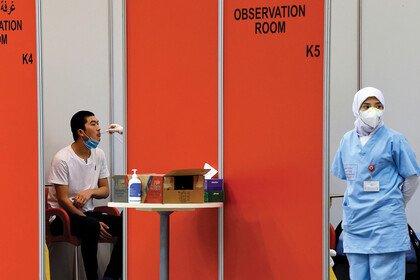
Covid-19 in the UK: the hard choices we face
Six months after lockdown was first announced in the UK, the country is seeing a rise in Covid-19 infections. Jeremy Farrar reflects on the measures we need to take to suppress transmission.

Lockdown is a bitter pill none of us would ever wish to have to swallow again, and one that this doctor would certainly not prescribe lightly. But as autumn arrives, we are in a very precarious situation.
Last week, six months after lockdown was first announced in the UK, some restrictions on daily life tightened again. Without vaccines, and in the absence of more effective treatments, limiting our physical interactions and robust public health measures are the medicine we must keep taking for now.
The UK chief medical and scientific officers presented a clear, straightforward, evidence-based picture of where we are and what lies ahead. This virus is with us for good. It is endemic. There are no easy answers, only difficult choices.
Some suggest the new restrictions go too far, too soon. Some say: prioritise economic recovery, shield the most vulnerable, allow the virus, and perhaps immunity, to spread among those less likely to fall seriously ill. I agree with neither.
No one wants a return to the horror of spring: the devastating death toll, with hospitals and healthcare workers pushed to the brink; delay and disruption to other vital health services; rising mental illness; deepening social tension and inequalities; our children’s and grandchildren’s educations interrupted.
Transmission has inevitably increased as summer turns to autumn. The infection rate – the R number – is now around 1.5, infections, hospitalisations and deaths are doubling roughly every seven days. We have not yet seen the impact of schools reopening.
I believe there is only one option: we have to further suppress transmission. Even with the best public health measures, this cannot be achieved without more restrictions on reopening society and the economy.
With epidemics you must always act faster and go further than at first seems necessary or you feel comfortable with. That has been the case in every epidemic I have worked through – SARS, HIV, bird flu, Ebola. Covid-19 is no exception.
A slow response in February left us quickly and dangerously behind the curve. Time bought by lockdown and the warmer months, less favourable to the virus, was not used wisely or well enough to prepare for the inevitable upsurge when the seasons changed and schools and workplaces reopened.
We do not yet have a test-trace-isolate system anywhere near as robust or reliable as needed.
Policies such as Eat Out to Help Out may have provided a boost for hospitality, a key part of our economy, but also gave a false sense of security that the worst was over.
While we can – must – avoid a return to outright lockdown, I would go with greater restrictions now than have so far been made.
That means further reducing contact between households; further restrictions for pubs, restaurants, gyms and non-essential shops; closing churches, mosques and all places of worship, but with greater financial and other support for all these sectors; employees in non-essential sectors working from home; online further education; keeping schools open but considering extended half-term holidays as "circuit-breakers". None of these is suggested lightly, or without insight into the impact.
By setting out a tough response now, we stand a far better chance of keeping ahead of this virus, reducing transmission and opening up the economy faster. If not, we are caught in a cycle of epidemic waves. I strongly believe we need to have an urgent, honest public debate on the hard choices we face.
The priority is keeping schools open.
We need to reduce social mixing, through a ban on households mixing indoors and restricted interactions in outdoor settings.
We should also reduce, and possibly close, pubs, restaurants, gyms and other leisure facilities and non-essential shops. This must come with support for these industries and people. With the right support, there may be acceptable ways to reduce hours with the right levels of adjustments to ensure social distancing. But the current restrictions do not go far enough to reduce transmission.
It is for politicians to make these very tough decisions, but public trust, confidence and understanding are critical to effective public health – and at the moment that trust is fragile and fracturing.
It is, of course, concerning to see the number of cases among university students. At universities and colleges, as in schools and across education, everyone is working hard to ensure that learning can continue and to look after the wellbeing of students and staff. Teaching in further and higher education should be online, except in those few courses where it is impossible.
Wherever students are based, it is essential they follow restrictions and guidelines within the university and in the towns and cities they are based.
These will be difficult months for us all. It is natural to hope this may be all over by Christmas. It will not, but I hope we can get transmission to levels that allow those who are away from home, whether for work, study or other reasons, to have an opportunity to return during holiday periods.
Further significant restrictions across society to suppress transmission, reduce the impact on the NHS – or open up the economy but accept the inevitable illness and death from Covid-19 that would result?
I have presented it as a binary choice. There is some nuance, but not much. It is this sort of hard choice we need to make in order to establish a clear sustainable strategic plan and then have the capacity and chance to deliver it. I fear a fudge will neither deliver an open economy nor save lives from Covid-19.
This article was first published in Sunday Times online on 26 September 2020.


